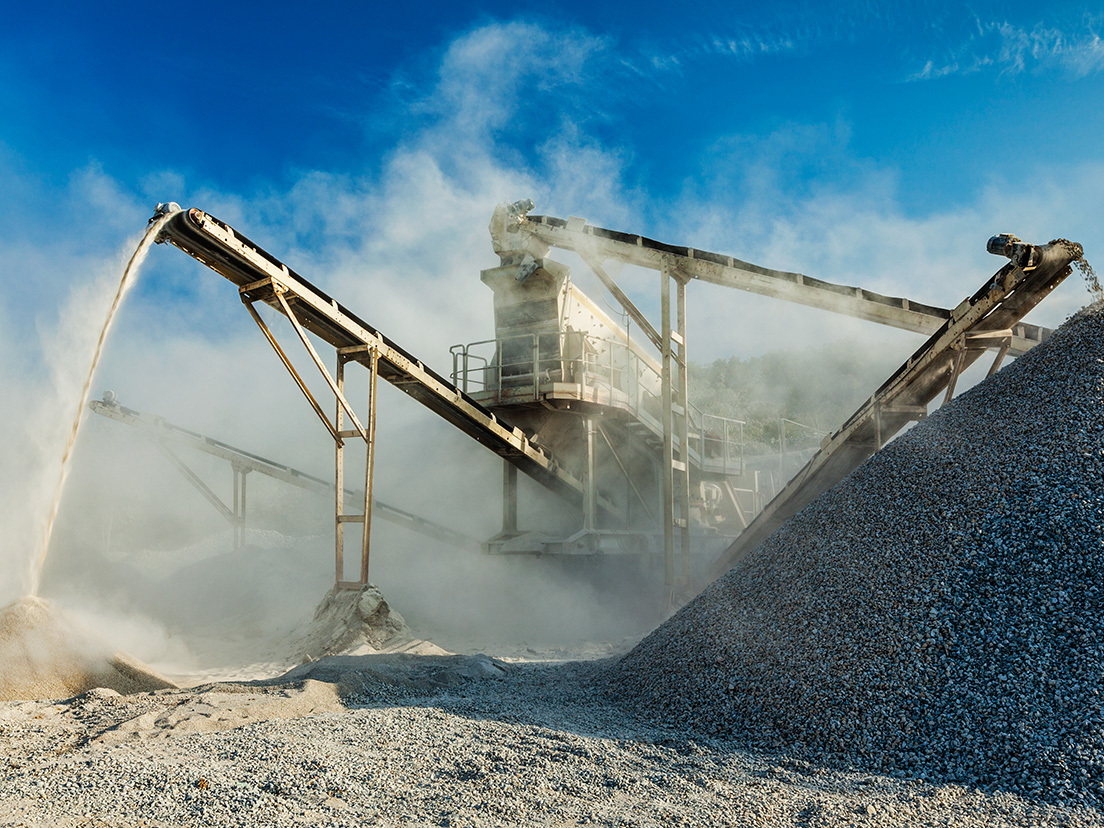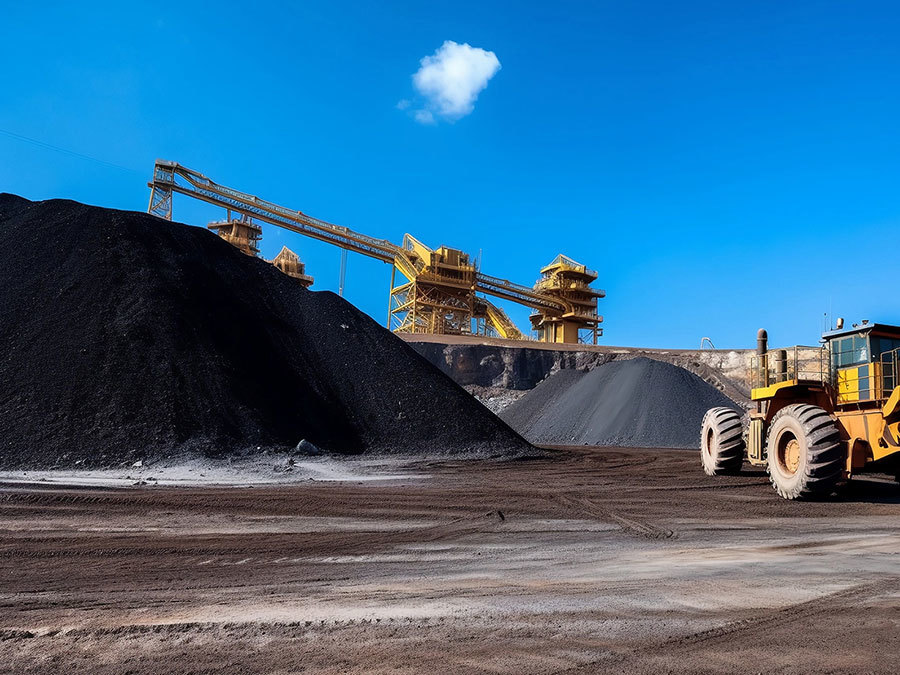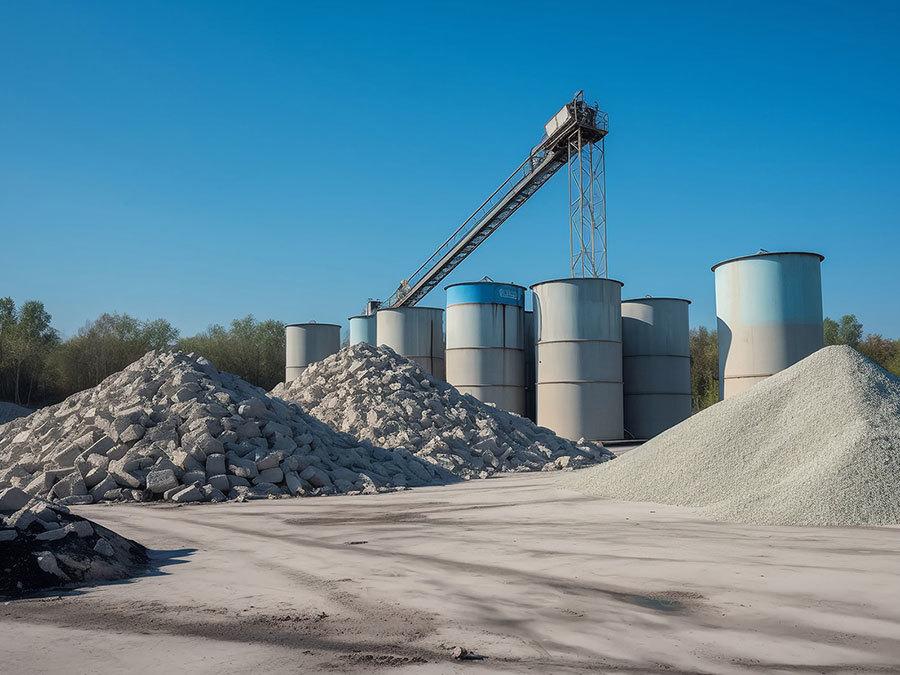The Science Behind Iron Ore Jaw Crushers: How They Transform Raw Materials
Release time:
2025-07-06
The Science Behind Iron Ore Jaw Crushers: How They Transform Raw Materials In the mining and mineral processing industries, the efficient extraction and processing of resources is paramount. Among the various types of machinery used in this sector, **iron ore jaw crushers** play a crucial role in transforming raw materials into usable products. This article explores the intricate science behind
The Science Behind Iron Ore Jaw Crushers: How They Transform Raw Materials
In the mining and mineral processing industries, the efficient extraction and processing of resources is paramount. Among the various types of machinery used in this sector, **iron ore jaw crushers** play a crucial role in transforming raw materials into usable products. This article explores the intricate science behind these machines, detailing their mechanics, applications, and the transformative effects they have on iron ore processing.
Table of Contents
- 1. Introduction to Iron Ore Jaw Crushers
- 2. The Mechanics of Iron Ore Jaw Crushers
- 3. Different Types of Jaw Crushers
- 4. Applications of Jaw Crushers in Iron Ore Processing
- 5. Key Benefits of Using Iron Ore Jaw Crushers
- 6. Challenges in Iron Ore Processing
- 7. The Future of Iron Ore Jaw Crushers
- 8. Frequently Asked Questions
- 9. Conclusion
1. Introduction to Iron Ore Jaw Crushers
Iron ore jaw crushers have become indispensable in the mining industry. As the demand for iron increases globally, the need for efficient and effective processing methods becomes even more critical. **Jaw crushers** are designed to crush large rocks into smaller, more manageable pieces, paving the way for further processing and refinement.
2. The Mechanics of Iron Ore Jaw Crushers
Understanding the mechanics behind iron ore jaw crushers is vital for appreciating their functionality. These machines operate using a simple yet effective principle: compressive force. The primary components include a stationary jaw plate and a moving jaw plate. When materials are fed into the crushing chamber, the moving jaw exerts pressure against the stationary plate, leading to the crushing of the ore.
2.1 How Crushing Occurs
The crushing process is characterized by several key phases:
- Feeding: Raw iron ore is loaded into the crusher’s feed opening.
- Crushing: The moving jaw moves towards the stationary jaw, crushing the ore into smaller fragments.
- Discharge: The crushed material is expelled from the bottom of the jaw crusher.
2.2 Design Features
Iron ore jaw crushers are equipped with various design features that enhance their efficiency:
- Adjustable Settings: Most models allow operators to adjust the size of the output, providing flexibility in processing needs.
- Robust Construction: Made from high-quality materials, these machines are designed to withstand harsh conditions and heavy use.
- Easy Maintenance: Simplified designs facilitate easier maintenance and quicker repairs, minimizing downtime.
3. Different Types of Jaw Crushers
There are several types of jaw crushers used in the mining industry, each suited for specific applications:
- Single Toggle Jaw Crushers: Known for their simple design and ease of use, ideal for processing softer materials.
- Double Toggle Jaw Crushers: More robust and capable of handling harder materials, suitable for large-scale operations.
- Mobile Jaw Crushers: These portable machines offer flexibility and are ideal for on-site processing.
4. Applications of Jaw Crushers in Iron Ore Processing
Iron ore jaw crushers play an essential role in various stages of iron ore processing: from extraction to refinement. Here are some key applications:
- Primary Crushing: Jaw crushers are often the first stage in crushing iron ore, reducing large chunks to manageable sizes.
- Pre-Processing: The crushed ore is often subjected to further processing, such as screening or washing, to enhance purity.
- Recycling Materials: Jaw crushers are also used in recycling operations, helping to process waste materials into reusable resources.
5. Key Benefits of Using Iron Ore Jaw Crushers
Implementing jaw crushers in iron ore processing brings numerous advantages:
- High Efficiency: Jaw crushers provide a high throughput, enabling more ore to be processed in less time.
- Cost-Effectiveness: Their durability and low maintenance requirements result in reduced operational costs.
- Versatility: Capable of handling various materials, jaw crushers are adaptable to different processing needs.
- Improved Product Quality: The controlled crushing process leads to a more uniform product output, enhancing the quality of the end product.
6. Challenges in Iron Ore Processing
While jaw crushers significantly improve iron ore processing, certain challenges persist:
- Wear and Tear: Due to the abrasive nature of iron ore, components can wear out quickly, requiring regular maintenance.
- Energy Consumption: High energy requirements can lead to increased operational costs.
- Space Limitations: Some sites may face constraints that limit the size or types of machinery that can be installed.
7. The Future of Iron Ore Jaw Crushers
The future of iron ore jaw crushers looks promising, with advancements in technology paving the way for more efficient processing solutions. Innovations such as:
- Automation: Incorporating smart technologies can enhance operational efficiency and reduce labor costs.
- Enhanced Materials: Developing stronger, more durable materials can lead to longer-lasting components.
- Eco-Friendly Designs: As environmental concerns grow, manufacturers are focusing on creating sustainable and energy-efficient machines.
8. Frequently Asked Questions
8.1 What is the primary function of an iron ore jaw crusher?
The primary function of an iron ore jaw crusher is to crush large blocks of iron ore into smaller, more manageable pieces, facilitating further processing.
8.2 How does a jaw crusher differ from other types of crushers?
Jaw crushers use compressive force to break down materials, while other crushers, like cone or impact crushers, use different mechanisms, such as shear or impact forces.
8.3 What maintenance is required for jaw crushers?
Regular maintenance includes checking for wear on components, lubricating moving parts, and ensuring the machine is clean from debris.
8.4 Can jaw crushers handle other materials besides iron ore?
Yes, jaw crushers are versatile and can process various materials, including softer rocks and recycled materials.
8.5 What are the safety considerations when operating a jaw crusher?
Safety considerations include wearing protective gear, ensuring proper training for operators, and following safety protocols while operating the machinery.
9. Conclusion
Iron ore jaw crushers are fundamental machines that significantly impact the mining industry by transforming raw materials into valuable products. Understanding their mechanics, applications, and benefits not only highlights their importance but also underscores the role they play in enhancing efficiency and productivity in iron ore processing. As technology continues to evolve, the future of jaw crushers looks brighter, promising even more innovative solutions for the challenges faced by the mining sector. The continual refinement of these machines will ensure their relevance in a rapidly changing industry, making them indispensable tools for iron ore processing.
Key words:
Learn more about industry dynamics
A mining machinery manufacturing enterprise that mainly produces crushing and screening machinery, integrating R & D, design, processing, manufacturing, sales and after-sales service.
Focus on crushing and screening machinery industry solutions
58 Guangshen Road, Luoxin Park, Economic and Technological Development Zone, Xin'an County, Luoyang City, Henan Province
Online message
We will contact you within one working day. Please pay attention to your phone or email.







